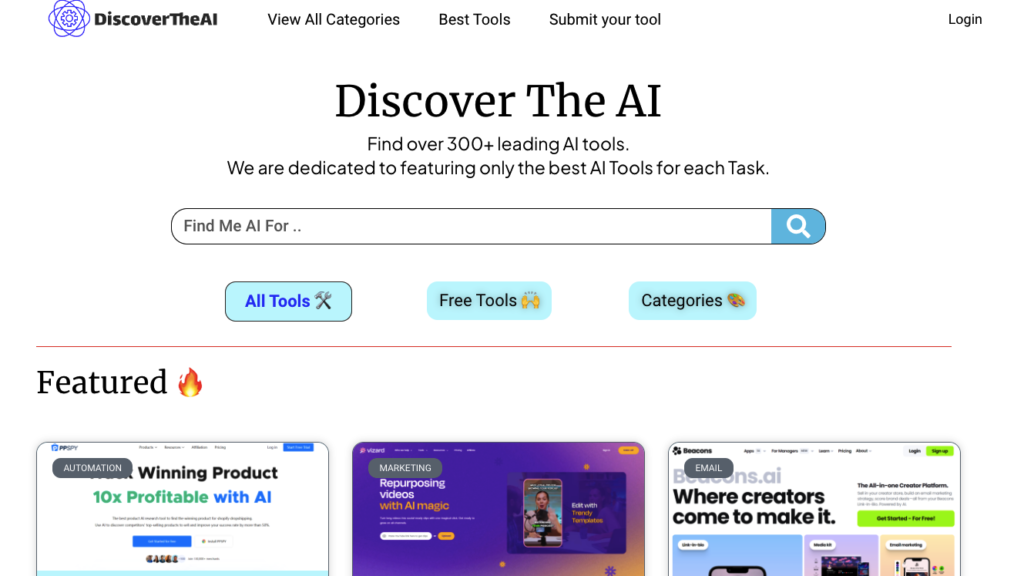In the realm of artificial intelligence (AI), Natural Language Processing (NLP) plays a vital role in enabling computers to comprehend and communicate in human language.
NLP has been employed since the 1950s, starting with its basic application in machine translation. Over the years, NLP has evolved and become an essential component of AI tools, transforming how computers engage with humans.
In this guide, we will explore the significance of NLP in AI tools, delving into its key elements, algorithms and practical applications.
By the end of this article, you will have a solid grasp of NLP and its profound impact across various industries.
What is Natural Language Processing (NLP)?
Natural Language Processing, commonly known as NLP, is a branch of AI dedicated to assisting computers in understanding and responding to written and spoken language—much like humans do. It combines computational linguistics with machine learning and deep learning techniques to process information in a manner that resembles human comprehension.
NLP empowers computers to gather, analyze and comprehend data effectively—ultimately facilitating cognitive computing. It goes beyond mere word recognition or sentence understanding by aiming to interpret the underlying intentions and emotions conveyed through language.
NLP has a wide range of uses, including machine translation, voice controlled assistants, sentiment analysis and content generation.
The Significance of NLP in AI
NLP plays a crucial role in AI by enabling computers to process and gain insights from large amounts of unstructured data. With the massive growth in data, extracting meaningful information and making informed decisions has become challenging. NLP addresses this challenge by handling vast quantities of unstructured digital data like newspaper articles, reports, social media comments and emails.
By utilizing NLP techniques, businesses can speed up the extraction of valuable insights from data, leading to improved decision making processes. NLP algorithms can analyze sentiment, extract keywords, perform accurate machine translation tasks and even generate high quality content. The applications of NLP are diverse and span across various industries such as healthcare, marketing, finance and education.
How NLP Functions
NLP processes human language through two stages; data pre processing and algorithm development. During the data pre processing phase, the text is cleaned and transformed into a format that machines can understand. This phase involves multiple steps such as tokenization (breaking text into individual units), removing unnecessary words (stop words), lemmatization or stemming (finding root forms) and assigning parts of speech tags.
Tokenization involves breaking down a text into individual words, while removing stop words eliminates redundant words that do not contribute to the overall meaning. Lemmatization or stemming helps in better understanding by reducing words to their root forms. Part of speech tagging categorizes words into different groups like nouns, pronouns, prepositions and verbs.
After the data is pre processed, specialized NLP algorithms process the transformed data to enable machines to effectively understand and respond to human language.
Types of NLP
There are different types of NLP algorithms used in natural language processing. Two prominent types are rules based NLP and machine learning algorithms.
Rules-Based NLP
Rules based NLP is one of the earliest approaches where linguistic experts or engineers create strict linguistic rules that the system follows to categorize and analyze language accurately. These rules ensure precise results by considering not only specific words but also utilizing extensive libraries of linguistic rules. This approach is commonly used for tasks like text classification and sentiment analysis.
Machine Learning Algorithms
On the other hand, machine learning algorithms learn from examples or training data without relying on predefined rules to perform tasks efficiently.These algorithms create connections between input and output by using training data, which enables them to make predictions on their own.
In the field of Natural Language Processing (NLP), machine learning algorithms can be trained to perform various tasks like machine translation, sentiment analysis and text extraction. As they process more data, these algorithms continuously learn and improve their performance.
Applications of NLP in Various Industries
NLP has found applications in various industries, fundamentally transforming how businesses operate. Let’s explore some sectors where NLP is indispensable;
Healthcare
Within the healthcare industry, NLP plays a crucial role in mining and analyzing data. By analyzing vast amounts of medical information, NLP empowers medical professionals to make objective decisions and provide improved treatment programs. It helps structure unstructured medical data for valuable insights in diagnosis and treatment.
Marketing
In marketing, NLP is extensively used to analyze audience posts and comments. This analysis uncovers customer needs and sentiments towards a brand. By understanding the sentiment behind customer narratives, marketers can develop effective tactics. NLP also assists in identifying keywords for advertising campaigns and powers chatbots to enhance user experience.
Finance
NLP plays an extensive role in the financial sector including banking and stock market analysis. It aids in processing financial data, detecting anomalies, monitoring brand sentiment and facilitating decision making.
NLP’s rapid data processing abilities provide financial analysts with a competitive edge when it comes to making well informed decisions.
Education
The emergence of e learning platforms has made NLP crucial in evaluating student knowledge and monitoring progress. It offers valuable insights into areas where students may face difficulties, leading to personalized learning and improvement. NLP benefits both students and teachers, optimizing the learning process.
Advantages of NLP in AI
NLP technology has transformed the way humans interact with computers by simplifying communication. It enables computers to understand and respond to human language effectively. Some advantages of incorporating NLP into AI are as follows;
- Reviewing extensive documents and generating summaries.
- Enhancing data accuracy by rectifying errors.
- Empowering voice assistants to comprehend voice commands efficiently.
- Identifying sentiment in customer comments and messages, improving user experience.
- Automating tasks and freeing up human resources, such as customer service representatives.
- Enabling analytical capabilities on large volumes of textual data, facilitating research and decision making processes.
Despite these advantages, NLP still encounters challenges and limitations that require attention for further enhancements.
Challenges of NLP
Although substantial progress has been made in the field of NLP, certain challenges and limitations persist.Some of the major difficulties we face are;
Lack of Context
Human speech can be imprecise and filled with slang, dialects and contextual nuances that NLP algorithms struggle to grasp without proper context. These algorithms need to be able to handle these variations and adapt to different communication styles.
Understanding the Tone of Voice
People often use figures of speech, sarcasm and irony in their language, which can be challenging for NLP algorithms to accurately interpret. It is crucial for these algorithms to evolve in order to capture the true meaning behind a sentence and understand the intended tone.
Errors in Speech or Writing
Misspelled or mispronounced words, as well as grammatical mistakes, present challenges for NLP algorithms. While proofreading tools can help identify specific errors, they may not fully comprehend the intention behind the language.
Language Development and Changes
Language is constantly evolving and changing, making it difficult for NLP algorithms to keep up with new vocabulary, slang terms and grammatical variations. These algorithms need to continuously update their knowledge in order to remain effective.
Summary
Natural Language Processing (NLP) is a crucial aspect of AI tools that enables computers to comprehend and respond appropriately to human language.
The field of natural language processing (NLP) combines computational linguistics, machine learning and deep learning to analyze large amounts of unstructured data and extract valuable insights.
NLP algorithms are vital in various industries like healthcare, marketing, finance and education. They enable businesses to analyze emotions, extract important words, perform automated translation and create high quality content.
Although NLP offers many benefits, it also faces challenges regarding context, tone of voice, language errors and linguistic development. Overcoming these challenges will further enhance the capabilities of NLP within AI technologies.
As artificial intelligence progresses, NLP will increasingly play a crucial role in improving interactions between humans and computers while revolutionizing our understanding and processing of language. Start your journey into NLP today to unlock the vast potential of this powerful technology.



